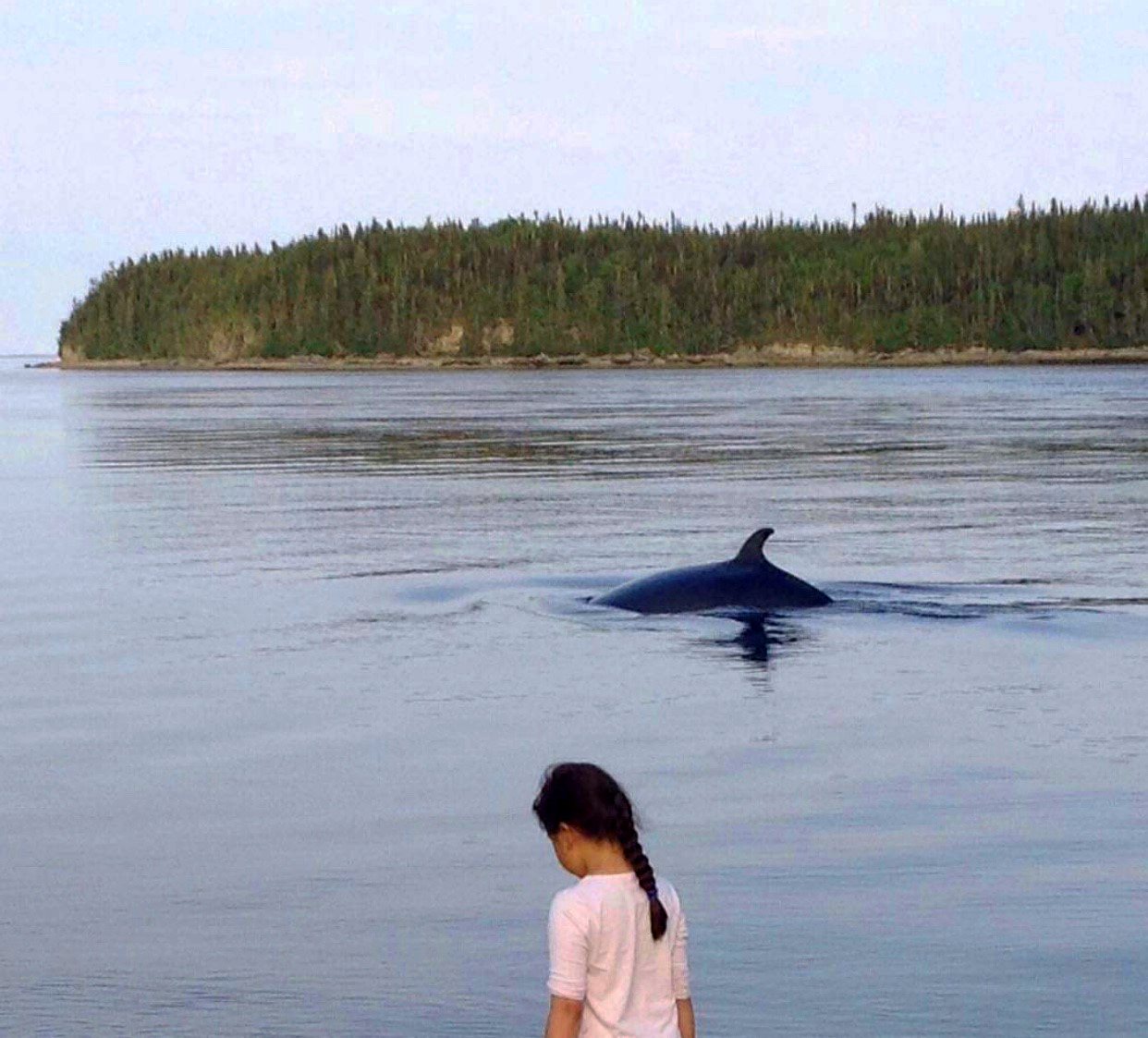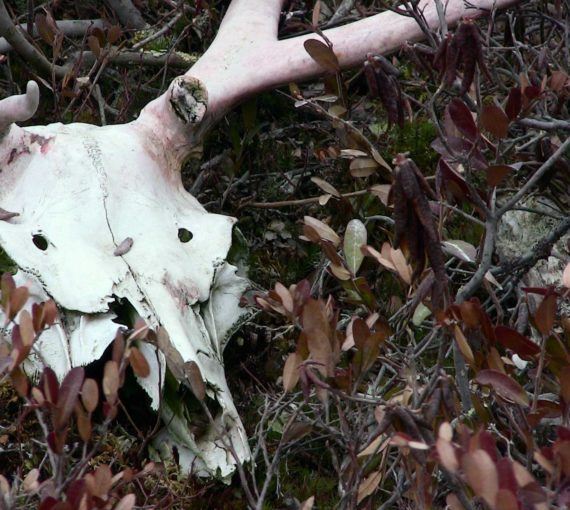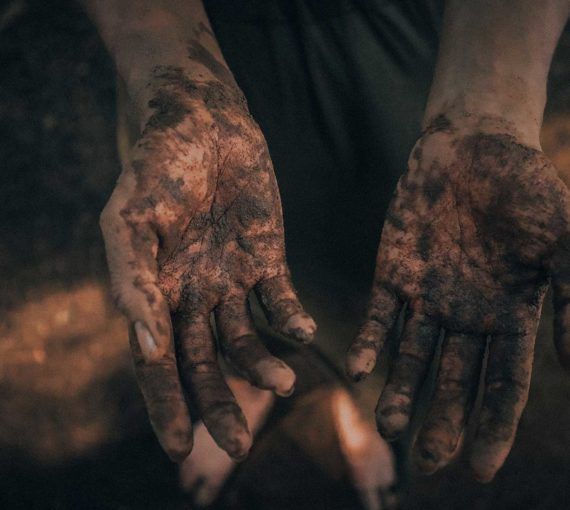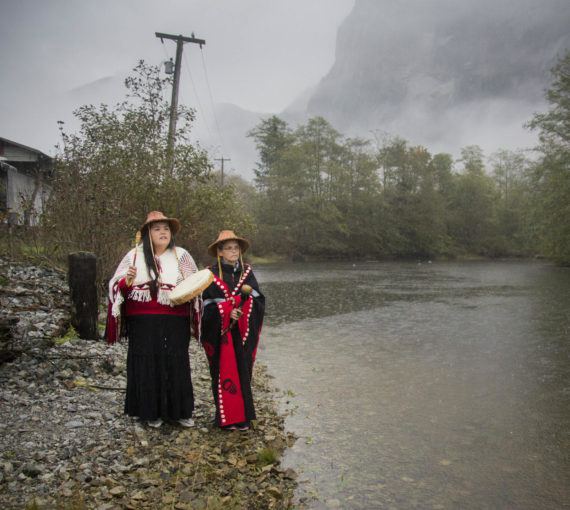
Zélya and the whale
The first time Rita called the whale for me, I was in the village collecting stories and testimonials about the caribou and the Innu relationship to the forest. While she generously offered me a song for the video that the Wapikoni Mobile team helped me record, I joked to her: “If you could ever make the whales appear for my movie!” She gave me a small smile and then called the Kukum from the sea.
“Nukum! Nukum! NUKUUUUUMMMMM!”
It was a cry of the heart from Rita, Uapukun and Zélya Mestokosho, three generations of women from kukum to ussima. They are my cousins, my big and little sisters, because the bonds that are made when a village raises a child blur the boundaries of blood and strengthen the ties of family.
Nukum: my grandmother, the cry echoes even on the stone walls of the island in front of my community and comes back to us. An echo of the heart and the kukum that responded by showing his back slicing the dark waters in two. The heart fills each time the grandmother whale answers the call: Mishtamekᵘ, the big fish.
While the film crew was recording, totally focused and captivated by Rita and her drum, I stood behind the team. Silently, Nukum showed its back, curious about the vibrations calling her. As a witness to this moment that no camera could fully capture, I remained under the spell that takes hold every time I am here. The women of my community seem to be able to muster up some kind of magic and help connect those who are not from this territory. Not that men do not have magic, but in a society of transmission of knowledge and roles, I more often have the chance to see the healing power of women. This first call was a year ago. This summer, the calling of the grandmother was sent out from a little girl.
For the Innu, there is an immemorial relationship to the territory that is magical and continues to be transmitted between grandmothers and little girls. It is this relationship that makes the whale answer again and again to their call.
My recent visit allowed me to see how active the women are in transmitting knowledge and sharing culture with those who are ready to learn. The cultural centre is vibrant with activities. Tourists from Germany have descended from their giant liner and make the route from Havre Saint-Pierre to live a unique experience where culture, nature and spirituality intertwine. Even the once-tense relationship between Parks Canada’s caretakers and the community seems to have taken a new direction, when on my last day we were onboard their boats to come to Quarry Island to share salmon, bannock and knowledge with the park’s visitors. They will learn the real name of the island: Massishk napaut minishtikᵘ, island of the standing cedar.
The boat is full of women: Yvette, Gaëlle and Aurélia, also three generations who come to share our language; Shaushet and Priscilla who share their knowledge of medicinal plants; finally Rita, Uapukun and Zélya, women of the sea and rivers. The team that accompanies us is itself open and interested in this knowledge, this respectful use of the territory, radically transforming the exchanges that used to make protected areas inaccessible to the Innu. Today, a global consensus is being established that recognizes the use and occupation of protected areas by its original occupants promotes its health and survival. These women of my family are not witches; they only continue to transmit and protect this knowledge and the territories that contain them.
It is this immemorial relationship to the territory that is magical and continues to be transmitted between grandmothers and little girls. The millennial relationship is created between each woman and the women she will create in her turn by the river that is transmitted at each birth over millennia. This relation is connected also by the spirits of those that have added, through the spectrum that is motherhood, strength and knowledge. It is this relationship that makes the whale answer again and again. Between women lies this understanding.


